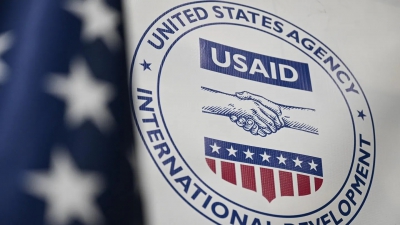Colombian President Petro announced on social media on the 20th that the country has entered a state of internal unrest and economic emergency in response to the escalating armed conflict in the north and the resulting humanitarian disaster.
In the Catatumbo region of Norte de Santander Province in northern Colombia, armed conflicts between the Ejército de Liberación Nacional (ELN) and the former Fuerzas Armadas Revolucionarias de Colombia (FARC) have continued in recent days, resulting in hundreds of casualties and the displacement of tens of thousands of people.

Agence France-Presse reported on the 20th that within five days, violent incidents occurred in three provinces of Colombia.
An official from the Colombian Defense Ministry said on the 20th that clashes between armed groups in Guaviare Province in the southeast of the country have resulted in 20 deaths.
The government of Norte de Santander Province in northeastern Colombia said on the 19th that conflicts broke out between armed groups in the Catatumbo region in recent days, and the death toll has risen to 80 people, with more than 20 others injured.

According to reports, the ELN took some civilians away from their homes and shot them in the street. The organization stated that these personnel had a cooperative relationship with the FARC.
Alice Marín Ortiz, head of the Office of the Colombian Ombudsman, said on social platforms on the 19th that at least 11,000 people were displaced in Norte de Santander Province within four days. According to Agence France-Presse, some people went to shelters, while others crossed the border to Venezuela.
Petro said the clashes in Catatumbo were "another example of the transformation of insurgent guerrillas into drug-armed groups." He also said that the ELN chose war and the government was with the people.
Faced with the tense situation in the north, the Colombian government urgently transported relief supplies and increased the deployment of government troops. Previously, the government had sent 300 additional soldiers to the area.

Colombia has a large number of armed groups and drug cartels vying for control of the lucrative drug trade. The 60-year conflict between Colombia's army, armed groups and drug cartels has killed nearly half a million people.
FARC was once Colombia's largest anti-government armed force. It signed a peace agreement with the government in 2016, disarmed and transformed into a political party the following year. However, some members of the FARC refused to lay down their weapons and set up a separate faction.
The ELN mainly engages in drug smuggling and other criminal activities in the Pacific coast and border areas of Colombia. The Colombian government announced on the 17th of this month that it had once again suspended peace negotiations with the armed forces.
Currently, there is widespread concern in Colombia that if not handled properly, the unrest may spread across the country and lead to the end of the peace process.










